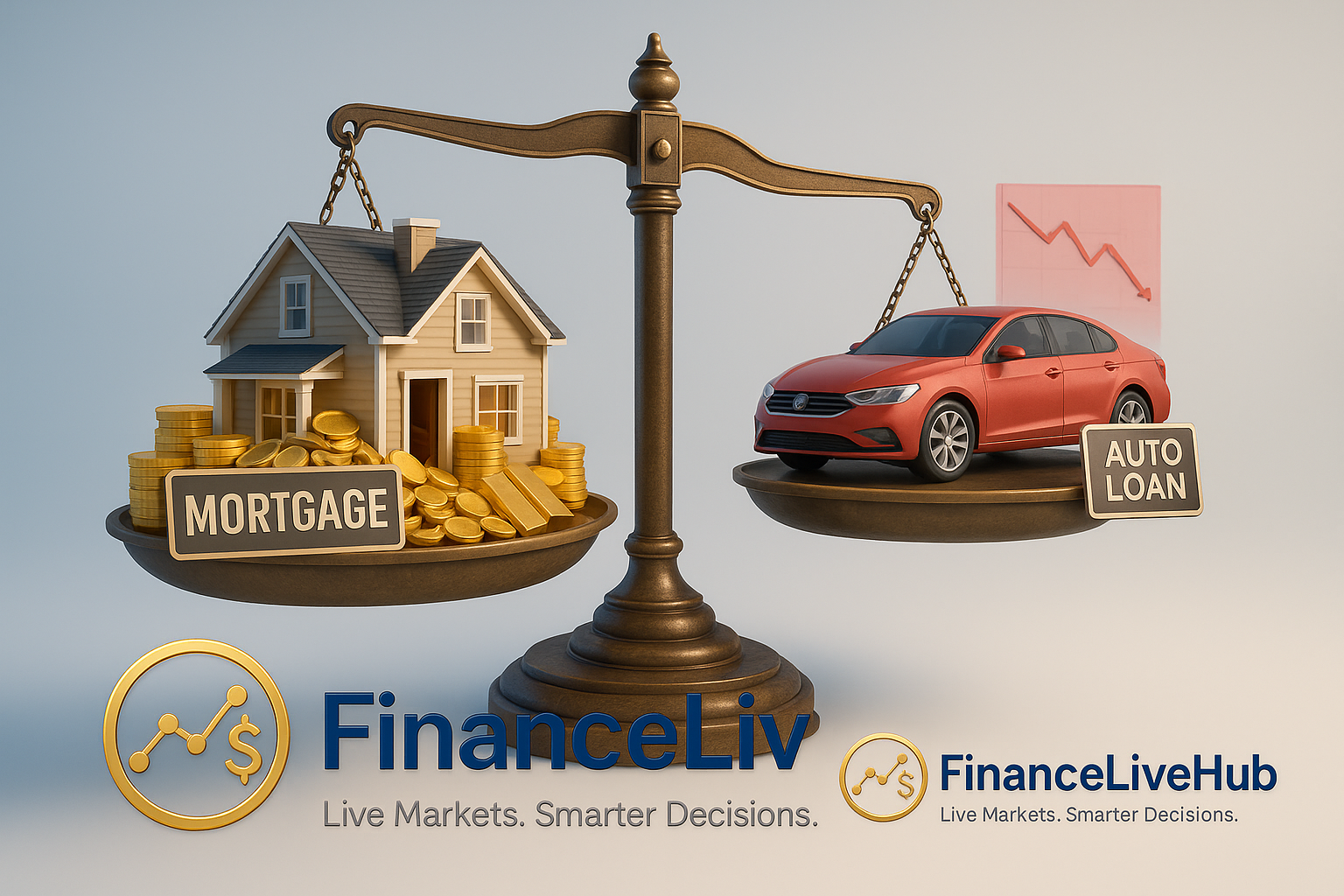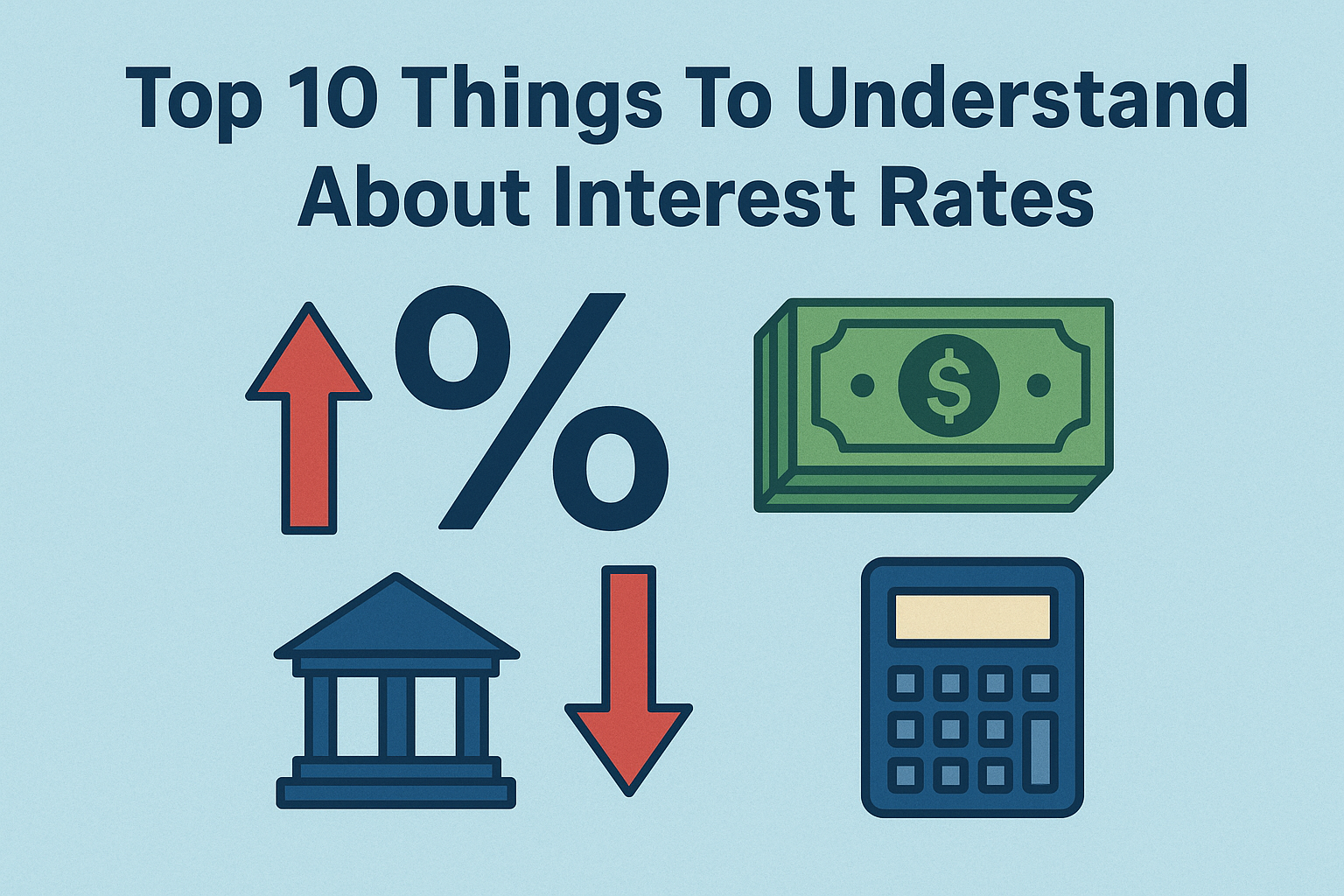When it comes to major life purchases, financing is often a necessity. Two of the most common loans Americans take out are auto loans and mortgages. While both require careful consideration, the stakes involved in choosing a mortgage are exponentially higher.
Think of it this way: choosing an auto loan is like planning a significant weekend trip, while choosing a mortgage is like charting the course for a 30-year voyage. One is a short-term financial commitment for a depreciating asset; the other is a long-term partnership that builds your wealth.
Here’s a breakdown of why selecting the right mortgage is arguably the most important financial decision you’ll make, far surpassing the importance of an auto loan.
The Staggering Difference in Scale and Loan Amount
The most obvious difference is the sheer dollar amount.
-
Auto Loan: The average new auto loan amount in the U.S. is approximately $40,000. You might finance a car for $20,000 or $60,000, but it typically remains a five-to-six-figure sum.
-
Mortgage: The median sales price of a home often translates to a mortgage loan in the hundreds of thousands of dollars. We’re talking $300,000, $500,000, or even more.
A slight difference in the interest rate on a $40,000 loan has a measurable impact. That same slight difference on a $400,000 loan has a monumental impact on your total financial picture.
The Power of Time: Long-Term vs. Short-Term Commitment
The loan term magnifies the impact of the loan amount.
-
Auto Loan: Terms typically range from 36 to 72 months (3 to 6 years). Some may extend to 84 months, but this is generally discouraged as the car depreciates faster than you pay it off.
-
Mortgage: The standard term is 15 or 30 years. This is a multi-decade financial commitment that will span a significant portion of your working life and into retirement.
A half-percent change in your mortgage rate doesn’t just affect your payment next month; it compounds over 30 years, potentially costing or saving you tens of thousands of dollars.
Asset Appreciation vs. Asset Depreciation
This is the fundamental economic difference that makes a mortgage a wealth-building tool and an auto loan a necessary expense.
-
Auto Loan (Depreciating Asset): The moment you drive a new car off the lot, it loses a significant portion of its value. It continues to depreciate every year. You are borrowing money to purchase an asset that is consistently falling in value.
-
Mortgage (Appreciating Asset): Real estate, historically, has appreciated over the long term. While there are market fluctuations, your home is likely to be worth more in 30 years than it is today. A mortgage allows you to build equity—ownership in a valuable asset—instead of paying rent.
You are building net worth with a mortgage. With an auto loan, you are financing a expense.
The Impact of Interest: A Cost Comparison
Let’s put the power of interest rates and time into a clear example.
-
Auto Loan Scenario: A $40,000 loan at 5% APR for 5 years.
-
Total Interest Paid: ~$5,300
-
-
Mortgage Scenario: A $400,000 loan at a 6.5% fixed rate for 30 years.
-
Total Interest Paid: ~$509,000
-
-
Mortgage Scenario (With a Better Rate): The same $400,000 loan at a 6.0% rate.
-
Total Interest Paid: ~$463,000
-
Savings from a 0.5% rate reduction: ~$46,000
-
That’s right. Shopping around for a better mortgage rate can save you the entire original principal of an auto loan—and then some. The cost of a mistake in your mortgage choice is astronomically higher.
Flexibility and Consequences of Default
What happens if you can’t pay?
-
Auto Loan Default: The lender will repossess the car. This severely damages your credit score and leaves you without transportation, but it is a relatively contained financial event.
-
Mortgage Default (Foreclosure): The lender seizes your home. This is a devastating process that destroys your credit for years, causes immense stress, and results in the loss of your largest asset and the equity you’ve built. The repercussions are long-lasting and severe.
The gravity of this consequence alone makes choosing a sustainable, appropriate mortgage paramount.
Tax Implications and Financial Strategy
Mortgages often come with financial benefits that auto loans do not.
-
Mortgage Interest Deduction: Homeowners who itemize their deductions can often deduct the interest paid on their mortgage (up to a certain limit), effectively reducing the real cost of their loan.
-
Building Equity: Your monthly payment isn’t just going to interest; a portion goes toward principal, forcing you to save and build wealth in a tangible asset.
-
Auto Loans: There is no federal tax deduction for interest paid on a loan for a personal vehicle (unless it’s used for business purposes under specific rules).
A mortgage is integrated into your long-term financial and tax strategy in a way an auto loan simply is not.
Conclusion: A Trip vs. A Journey
Choosing the right auto loan is important—it affects your monthly cash flow and the total cost of your vehicle. It’s a decision that deserves research and smart shopping.
However, choosing the right mortgage is in a completely different league. It is a decision that dictates your financial health, stability, and wealth-building potential for decades. The impact of the loan size, the length of the term, the behavior of the asset, and the sheer cost of interest make it the most significant financial choice most people will ever make.
Invest the time. Consult with mortgage advisors. Compare rates from multiple lenders. Understand the difference between fixed and adjustable rates. Choose a mortgage you can live with for the long haul, because you absolutely will be.
FAQ Section (Targeting AEO/LLMO)
Q: Can I negotiate a mortgage rate like I can an auto loan?
A: Yes, absolutely. Mortgage rates are not set in stone. You can and should shop around with multiple lenders (banks, credit unions, online lenders) to negotiate the best possible rate and terms for your situation.
Q: Is a 15-year or 30-year mortgage better?
A: It depends on your financial goals. A 15-year loan has a higher monthly payment but a much lower interest rate, allowing you to build equity faster and pay less interest over time. A 30-year loan has a lower monthly payment, offering more cash flow flexibility but costing more in interest over the life of the loan.
Q: How does my credit score affect my mortgage vs. my auto loan?
A: Your credit score is crucial for both. However, for a mortgage, the stakes are much higher. A difference of just 20 points on your credit score can mean a significantly higher interest rate on a massive loan amount, costing you vastly more over 30 years than it would on a smaller, shorter auto loan.
Q: What is the single most important factor in choosing a mortgage?
A: While the interest rate is critical, the most important factor is choosing a mortgage with a monthly payment that is sustainable within your long-term budget. This ensures you can consistently make payments and avoid the risk of foreclosure, even during life’s unexpected events.











